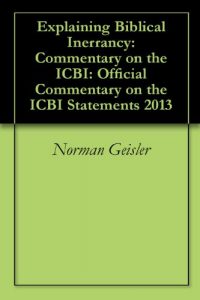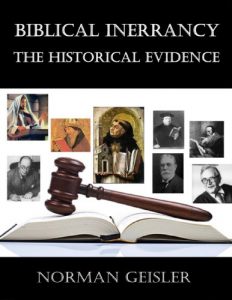AT SOME TIME OR ANOTHER, EVERYONE WONDERS about the existence of evil and suffering in the world. Its presence has touched all, ravaged many, and per¬plexed the thinking people throughout the ages. Surely, if there were a God in the universe, He would have both the desire and the power to rid the world of evil!
In his book The Plague, Albert Camus confronts the reader with this dilemma through the character of Paneloux, the priest of the village. As his community is overwhelmed by the horror of the plague, Paneloux is forced to make a crucial philosophical decision. Either he must have faith that God will bring good out of the evil situation, or he must stand with Dr. Rieux and Tarrou and condemn the evil situation as unbeara¬ble and unredeemable. To them, the situation declares either that there is no God, and man is left to struggle in futility, or that if there is a God, He must be the supreme, evil enemy of human beings. The tension of this per¬sonal dilemma is the captivating force in Camus's powerful story.
Not all who have considered the problem of evil have been driven to these two extremes. Some have sought to fit God into the universe by changing the traditional view of His character. They have suggested that if God exists, He might not be all-powerful and therefore not able to rid the world of evil. Others have argued that God is not all-loving but instead is gener¬ally unconcerned about the personal tragedy that man faces. This view considers God to be like the professor in Thomas Carlyle's essay Sartor Resartus. As the professor looks out upon the masses of people beneath his window and sees them huddled and struggling, he finds himself becoming more and more removed from their problems and tragedies. He is no longer involved with and experiencing their toils and anguish. It is as if he has ceased to be a member of the human race, for now he views their world with compassionless de¬tachment. Similarly, some men think of God as de¬tached and isolated from human beings, as uninvolved as the professor in Carlyle's essay.
It is not difficult to recall times of tragedy, personal or close at hand. At such times, answers about God and evil seem elusive or unsatisfying. The dilemma is not only intellectual, but also existential. Must one believe that God is cruel, compassionless, impotent, or nonexistent in order to deal with the reality of evil in the world? This is more than an abstract, philosophical question. It touches each and every one of us where we live. And sooner or later, either deliberately or inadvertently, each of us adopts a view with regard to evil.
In this book we will examine some philosophical options that have been proposed to answer the apparent contradictions between evil and a good God. We will look at such systems as Illusionism, Dualism, Finite Godism, Atheism, Open Theism, and Theism. Each will be evaluated for strengths and weaknesses. It is obvi¬ously impossible to cover every aspect of these systems in rigorous detail in this short work; therefore, those who are interested in further detail are encouraged to refer to the list of references under the Bibliography for further reading located at the end of the book.
In his book The Plague, Albert Camus confronts the reader with this dilemma through the character of Paneloux, the priest of the village. As his community is overwhelmed by the horror of the plague, Paneloux is forced to make a crucial philosophical decision. Either he must have faith that God will bring good out of the evil situation, or he must stand with Dr. Rieux and Tarrou and condemn the evil situation as unbeara¬ble and unredeemable. To them, the situation declares either that there is no God, and man is left to struggle in futility, or that if there is a God, He must be the supreme, evil enemy of human beings. The tension of this per¬sonal dilemma is the captivating force in Camus's powerful story.
Not all who have considered the problem of evil have been driven to these two extremes. Some have sought to fit God into the universe by changing the traditional view of His character. They have suggested that if God exists, He might not be all-powerful and therefore not able to rid the world of evil. Others have argued that God is not all-loving but instead is gener¬ally unconcerned about the personal tragedy that man faces. This view considers God to be like the professor in Thomas Carlyle's essay Sartor Resartus. As the professor looks out upon the masses of people beneath his window and sees them huddled and struggling, he finds himself becoming more and more removed from their problems and tragedies. He is no longer involved with and experiencing their toils and anguish. It is as if he has ceased to be a member of the human race, for now he views their world with compassionless de¬tachment. Similarly, some men think of God as de¬tached and isolated from human beings, as uninvolved as the professor in Carlyle's essay.
It is not difficult to recall times of tragedy, personal or close at hand. At such times, answers about God and evil seem elusive or unsatisfying. The dilemma is not only intellectual, but also existential. Must one believe that God is cruel, compassionless, impotent, or nonexistent in order to deal with the reality of evil in the world? This is more than an abstract, philosophical question. It touches each and every one of us where we live. And sooner or later, either deliberately or inadvertently, each of us adopts a view with regard to evil.
In this book we will examine some philosophical options that have been proposed to answer the apparent contradictions between evil and a good God. We will look at such systems as Illusionism, Dualism, Finite Godism, Atheism, Open Theism, and Theism. Each will be evaluated for strengths and weaknesses. It is obvi¬ously impossible to cover every aspect of these systems in rigorous detail in this short work; therefore, those who are interested in further detail are encouraged to refer to the list of references under the Bibliography for further reading located at the end of the book.









